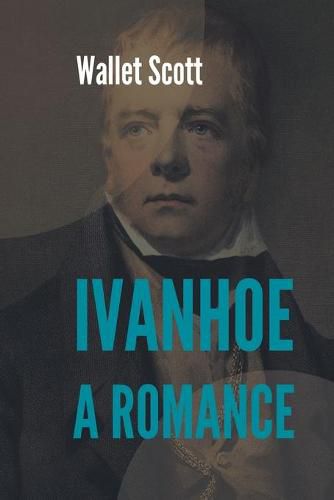Readings Newsletter
Become a Readings Member to make your shopping experience even easier.
Sign in or sign up for free!
You’re not far away from qualifying for FREE standard shipping within Australia
You’ve qualified for FREE standard shipping within Australia
The cart is loading…






This title is printed to order. This book may have been self-published. If so, we cannot guarantee the quality of the content. In the main most books will have gone through the editing process however some may not. We therefore suggest that you be aware of this before ordering this book. If in doubt check either the author or publisher’s details as we are unable to accept any returns unless they are faulty. Please contact us if you have any questions.
The Author of the Waverley Novels had hitherto proceeded in an unabated course of popularity, and might, in his peculiar district of literature, have been termed L'Enfant Gate of success. It was plain, however, that frequent publication must finally wear out the public favour, unless some mode could be devised to give an appearance of novelty to subsequent productions. Scottish manners, Scottish dialect, and Scottish characters of note, being those with which the author was most intimately, and familiarly acquainted, were the groundwork upon which he had hitherto relied for giving effect to his narrative. It was, however, obvious, that this kind of interest must in the end occasion a degree of sameness and repetition, if exclusively resorted to, and that the reader was likely at length to adopt the language of Edwin, in Parnell’s Tale: ‘Reverse the spell, ’ he cries, ‘And let it fairly now suffice. The gambol has been shown.’ Nothing can be more dangerous for the fame of a professor of the fine arts, than to permit (if he can possibly prevent it) the character of a mannerist to be attached to him, or that he should be supposed capable of success only in a particular and limited style. The public are, in general, very ready to adopt the opinion, that he who has pleased them in one peculiar mode of composition, is, by means of that very talent, rendered incapable of venturing upon other subjects. The effect of this disinclination, on the part of the public, towards the artificers of their pleasures, when they attempt to enlarge their means of amusing, may be seen in the censures usually passed by vulgar criticism upon actors or artists who venture to change the character of their efforts, that, in so doing, they may enlarge the scale of their art.
$9.00 standard shipping within Australia
FREE standard shipping within Australia for orders over $100.00
Express & International shipping calculated at checkout
This title is printed to order. This book may have been self-published. If so, we cannot guarantee the quality of the content. In the main most books will have gone through the editing process however some may not. We therefore suggest that you be aware of this before ordering this book. If in doubt check either the author or publisher’s details as we are unable to accept any returns unless they are faulty. Please contact us if you have any questions.
The Author of the Waverley Novels had hitherto proceeded in an unabated course of popularity, and might, in his peculiar district of literature, have been termed L'Enfant Gate of success. It was plain, however, that frequent publication must finally wear out the public favour, unless some mode could be devised to give an appearance of novelty to subsequent productions. Scottish manners, Scottish dialect, and Scottish characters of note, being those with which the author was most intimately, and familiarly acquainted, were the groundwork upon which he had hitherto relied for giving effect to his narrative. It was, however, obvious, that this kind of interest must in the end occasion a degree of sameness and repetition, if exclusively resorted to, and that the reader was likely at length to adopt the language of Edwin, in Parnell’s Tale: ‘Reverse the spell, ’ he cries, ‘And let it fairly now suffice. The gambol has been shown.’ Nothing can be more dangerous for the fame of a professor of the fine arts, than to permit (if he can possibly prevent it) the character of a mannerist to be attached to him, or that he should be supposed capable of success only in a particular and limited style. The public are, in general, very ready to adopt the opinion, that he who has pleased them in one peculiar mode of composition, is, by means of that very talent, rendered incapable of venturing upon other subjects. The effect of this disinclination, on the part of the public, towards the artificers of their pleasures, when they attempt to enlarge their means of amusing, may be seen in the censures usually passed by vulgar criticism upon actors or artists who venture to change the character of their efforts, that, in so doing, they may enlarge the scale of their art.